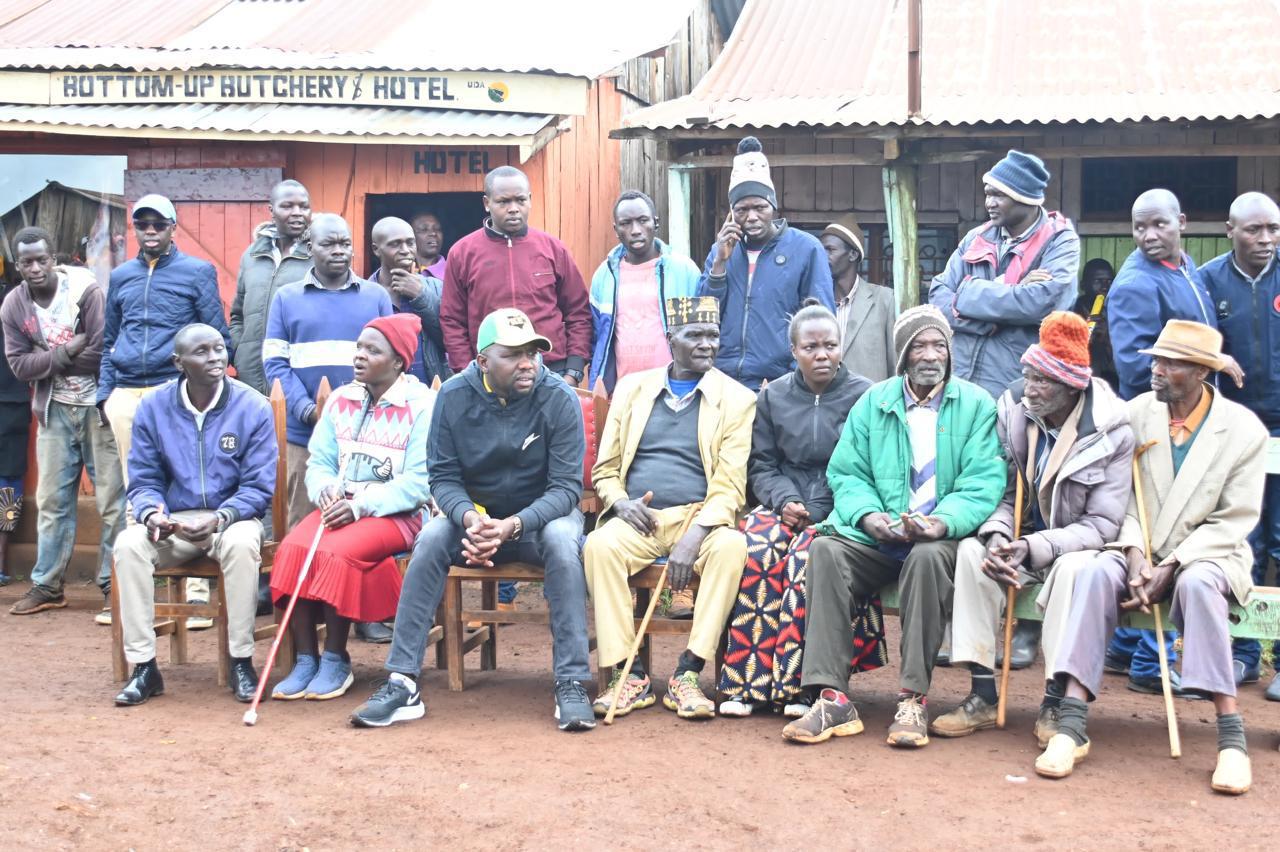
The government has called on Kenyans to give their views on the Village Elders Policy.
The public participation will be done on April 15, 2025, at all former provincial administration offices.
The policy is meant to recognise and appreciate the role of village elders in communities.
The Draft National Government Village Administration Policy is an initiative that seeks to formalize the place of Village Administrative Elders in Kenya’s governance structure.
This policy seeks to
onboard village elders into the formal National Government Administration
Infrastructure.
Interior Cabinet Secretary Kipchumba Murkomen said the move is more than policy, adding it is a historic restoration of dignity.
He argued that the policy represents a
“transformative milestone in our journey towards devolved governance.”
He termed it a tool to “bridge the gap between the people and government,” anchoring service delivery at the grassroots while promoting inclusivity, unity, and sustainable growth.
“For a country whose Constitution (Article 6(3)) mandates access to services in every corner of the Republic, the formal recognition of the village as the lowest unit of administration is not just constitutional, it’s moral. But it is not just about structure. It’s about people. Real people,” he said.
Principal Secretary Raymond Omollo said the group wields huge influence in community representation and decision-making.
“They provide the
fabric that holds society together,” he said.
The policy outlines a clear vision: to build a structured, accountable, and well-facilitated Village Administration system.
It proposes the mapping and gazettement of villages, introduces eligibility criteria for elders, and assigns them well-defined roles, from maintaining incident registers and promoting peace to acting as liaisons with government agencies.
It also provides for
their training, facilitation, and oversight.
The policy has been shaped by voices from across
Kenya through years of consultations with stakeholders, including community
members, chiefs, lawmakers, and development partners.
It is a people-driven framework, anchored in values of public participation, dignity, and inclusion, said Omollo.
The implementation will require resources,
coordination with county governments, and continued civic education to ensure
all citizens understand the policy’s intent and impact.
But with committed leadership from the Ministry, strong community networks, and support from stakeholders, the policy has every chance of success, added the PS.
“This is more than policy reform. It’s an act of justice. For the old man who wakes up at dawn to mediate a land dispute. For the elderly woman who keeps peace in her homestead. For the quiet warriors who have held the social fabric together even as systems failed them.”
The policy identifies the qualification criteria of village elders and provides a framework for their facilitation.
It also establishes clear structures and processes for governance within villages that are aligned with the broader National development agenda.
“Through this policy, the Ministry of Interior seeks to empower village elders to manage local community affairs.”
The policy further aims to streamline communication between the National Government and local and grassroots communities.
The policy outlines that for one to qualify to become a village elder, there must be recognition through public participation.
He or she must be a citizen of Kenya and sound mind, and also Knowledgeable about the village, culture and residents.
Other criteria include meeting the requirements of Chapter Six of the Constitution, as well as being “A visionary person with charisma and good standing in the community.”
One must also be a resident of the respective Village for a continuous period of not less than five years before the recognition date.
In the new policy, Village elders will play the following roles and responsibilities: administer the village where they reside, document and maintain a village incidents’ register, and promote peace, security and good governance in the village in collaboration with other relevant government agencies.
The elders will also participate in the settlement of civil disputes at the village level through Alternative Dispute Resolution (ADR), provide intelligence and early warning information through the Assistant Chief and provide liaison between the community and the National Government through the Assistant Chief.
They will also promote village welfare and cordial working inter-governmental relations within the Village and any other lawful assignments from the Assistant Chief.
The launch of the policy comes a few months after the Ministry of Interior also proposed a Sh7,000 monthly allowance, depending on Kenya's economic conditions, for village elders across the country.
The Ministry insisted that compensation of village elders will strengthen grassroots governance and community development in the country.











